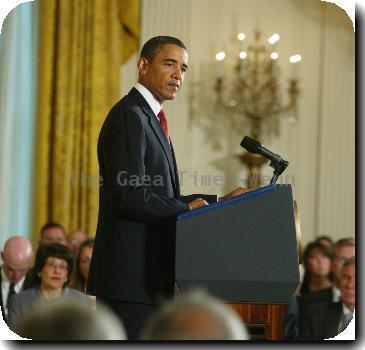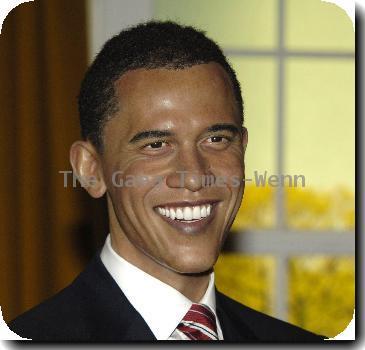Obama meeting with Dalai Lama is signal to Beijing (Comment)
By Mayank Chhaya, IANSFriday, February 19, 2010
As the Dalai Lama emerged from his meeting with US President Barack Obama at the White House and walked past reporters, TV crews and news photographers, he paused and picked up a handful of snow. He then gently threw it at the media and chuckled.
There was no sign in his demeanour that his meeting with Obama Thursday had taken place against the backdrop of an angry China which had explicitly warned the United States against it. In terms of its optics, the White House took care to ensure that the meeting came across as nothing more than a gesture of courtesy to the 74-year-old Dalai Lama, something successive US presidents have accorded him since 1991.
However, there was enough in the official statement to let it be known to Beijing that seen together with the recent US decision to approve billions of dollars in arm sales to Taiwan, the Obama administration was being not just being symbolic.
“The president met this morning at the White House with His Holiness the XIV Dalai Lama. The president stated his strong support for the preservation of Tibet’s unique religious, cultural and linguistic identity and the protection of human rights for Tibetans in the People’s Republic of China. The president commended the Dalai Lama’s ‘Middle Way’ approach, his commitment to non-violence and his pursuit of dialogue with the Chinese government. The president stressed that he has consistently encouraged both sides to engage in direct dialogue to resolve differences and was pleased to hear about the recent resumption of talks. The president and the Dalai Lama agreed on the importance of a positive and cooperative relationship between the United States and China,” said the statement by White House press secretary Robert Gibbs.
It is unlikely to be lost on China that the reference to Tibet’s “unique religious, cultural and linguistic identity and the protection of human rights for Tibetans” is a direct signal to pay much more attention to solving the over five-decade-old dispute than it so far has. None of those things can be achieved without fundamentally agreeing with the Dalai Lama’s approach. The Tibetan leader himself played it characteristically safe when asked at a news conference whether Obama had indicated how he was going to help. He replied, “I think time will tell. We can’t predict it…very difficult.”
The Dalai Lama’s aides seem to find much to point out in the very fact that the meeting took place at all. “Today’s meeting is a clear demonstration of President Obama’s support for the Dalai Lama’s efforts to resolve the Tibet issue as well as of his personal respect for him,” Lodi Gyari, the Tibetan special envoy to Washington and chief negotiator with the Chinese government, was quoted as saying in an official statement.
“The United States has a long and active record on Tibet with well-established policies and programs,” said Mary Beth Markey, vice president for International Advocacy at the International Campaign for Tibet. “Thus, when the White House stated that the president is meeting with the Dalai Lama as a ’spokesman’ for Tibet rights, it connotes that the agenda will address far more than religious matters and will cover a range of substantive issues, such as human rights abuses, economic marginalisation and regional stability.”
In real terms though it is anybody’s guess whether the Obama administration can do much more than to engage in strong symbolism on Tibet given that it needs China’s cooperation on many global issues. Of particular concern is the development in Iran whose President Mahmoud Ahmadinejad has practically declared his country a “nuclear state.” China, which depends on Iran among other sources for its energy security, has a crucial role to play if Tehran were to be eventually compelled not to pursue its nuclear weapons programme. During a recent visit to the Middle East by Secretary of State Hillary Rodham Clinton, Saudi Arabia was reported to have assured China of oil supplies in the event of a disruption in those from Iran.
China’s importance in maintaining economic stability in the US is also another major factor that can inhibit how far Obama can really go in pushing the Asian giant to take tangible steps on Tibet along the lines that the Dalai Lama is suggesting.
The purpose of the meeting, which took place in the Map Room of the White House as opposed to the Oval Office, was to tell Beijing that Washington would not go out of its way to placate the Chinese leadership on the two most delicate issues of Tibet and Taiwan. However, its real benefit in terms of the resolution of the Tibetan dispute is at best questionable.
(20.02.2010 - Mayank Chhaya is an authorised biographer of the Dalai Lama. He can be contacted at m@literateworld.com)

